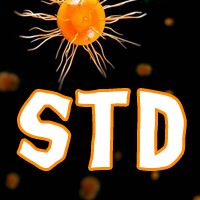Article
New Guidelines to Curb Sexually Transmitted Infections
Author(s):
Counseling at-risk teens and adults to change risky behavior is an effective way to reduce the spread of sexually transmitted diseases, according to the US Preventive Services Task Force (USPSTF). The group is updating its guidelines for primary care physicians to recommend they offer appropriate patients such behavioral advice. The task force also calls for routine screening for chlamydia and gonorrhea for sexually active teens and women up to age 24. Older women who are pregnant or may be at risk of infection due to a variety of sexual behaviors-such as having multiple partners or exchanging sex for money or drugs-should also be screened, the USPSTF said.

Counseling at-risk teens and adults to change risky behavior is an effective way to reduce the spread of sexually transmitted diseases, according to the US Preventive Services Task Force (USPSTF). The group is updating its guidelines for primary care physicians to recommend they offer appropriate patients such behavioral advice.
The task force also calls for routine screening for chlamydia and gonorrhea for sexually active teens and women up to age 24. Older women who are pregnant or may be at risk of infection due to a variety of sexual behaviors—such as having multiple partners or exchanging sex for money or drugs—should also be screened, the USPSTF said.
But the group does not recommend testing men for the diseases—despite the fact that a 2012 study of men who have sex with men found that 15% had gonorrhea and 12% had chlamydia. The American Academy of Pediatrics recommends such screening for teenage boys and young men who have sex with males. But the USPSTF stated it was unable to find enough information to weigh the benefits with the potential harms or cost of screening. It also noted that women may not have symptoms while infected but that men do, and thus are more likely to seek treatment.
The new guidelines are described in Annals of Internal Medicine, published online Sept. 23, 2014.
The reason for the changes is concern over the continuing spread of sexually transmitted infections (STI), with about 20 million new cases each year in the US. Those illnesses can lead to pelvic inflammatory disease, infertility, and cancer. They also carry special risks for pregnant women and their infants, including death or serious physical and mental disabilities, Michael LeFevre, MD, wrote in the article.
Quoting the US Centers for Disease Control and Prevention (CDC), LeFevre said the annual cost of treating STIs is about $16 billion, with chlamydia treatment costing about $516 million and gonorrhea treatment about $162 million.
The risk of these STIs is particularly high in “incarcerated populations, military recruits, and patients receiving care at public STI clinics,” LeFevre and colleagues wrote. Infection rates also tend to be higher in blacks and Hispanics.


